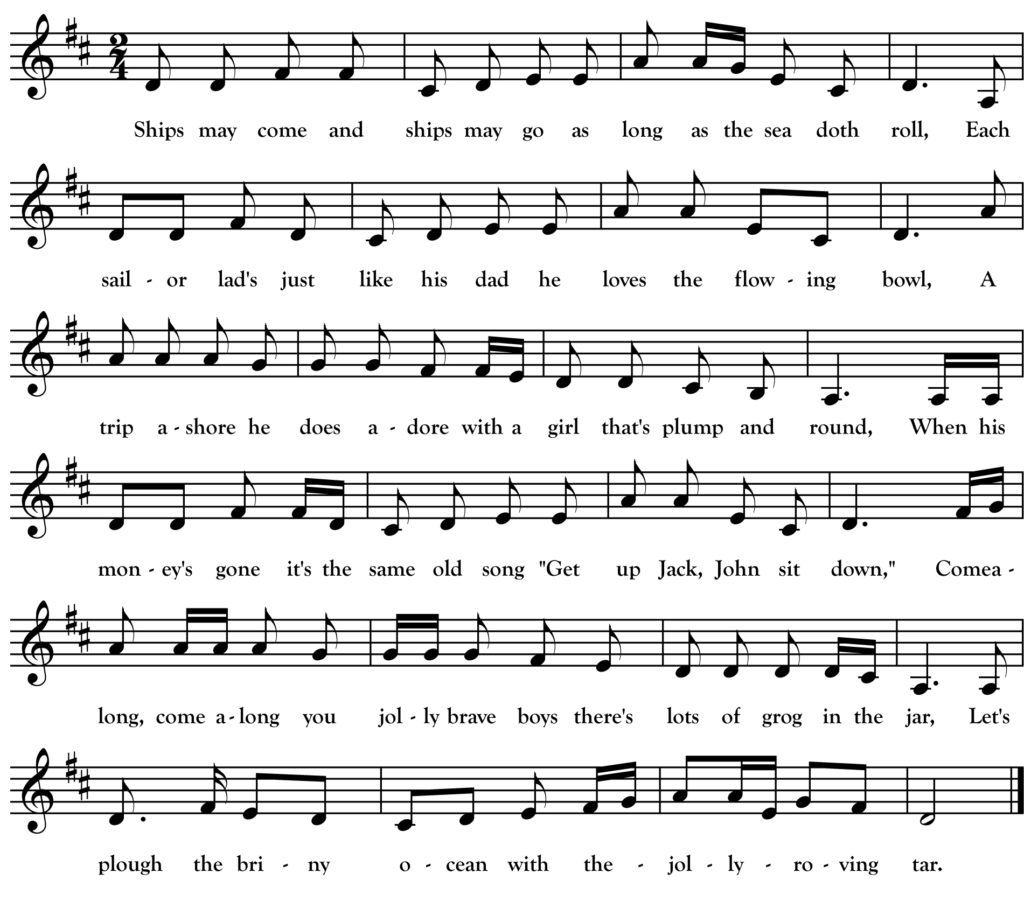Darby O’Leary

I strayed far away from the old County Down,
Aiming for riches for fame and renown,
I wandered ‘til I came to Galbally town and was hired to Darby O’Leary.
When we entered his kitchen, I entered it first;
It seemed like a kennel or a ruined old church:
Says I to myself, “I am left in the lurch in the house of old Darby O’Leary.”
Two praties he gave me for supper at night,
With a cup of sour milk that would sicken a snipe,
He was stingy and heartless I ne’er saw the light; oh, a hard man was Darby O’Leary.
The silly old miser he sat with a frown,
While straw was brought in for to make my shakedown,
I wish I had never seen Galbally town or the sky over Darby O’Leary.
I worked in Tipperary, the Rag, and Rosegreen,
I worked in Knockainey and the Bridge of Aleen,
But such woeful starvation I’ve never yet seen as I got from old Darby O’Leary.
Also known as “The Galbally Farmer,” this song is a fine example of a worker’s complaint song about a bad boss and unpleasant working conditions. Oxford’s Bodleian Library has a broadside version of this (probably from the early 1800s) entitled “The Spalpeen’s Complaint of Darby O’Leary” and another version also appears in P. W. Joyce’s 1909 Old Irish Folk Music and Songs.
The version above takes its melody from New Brunswick singer Angelo Dornan. The verses are based on those sung by Dornan (verse 4), New York/New Hampshire singer Lena Bourne Fish (verses 1 and 3) and Tom Lenihan of County Clare (verses 2 and 5). Fish’s opening verse is the only one I have seen that has the protagonist hailing from County Down. Galbally, County Limerick is in the southeastern corner of the county on the border with Tipperary.

